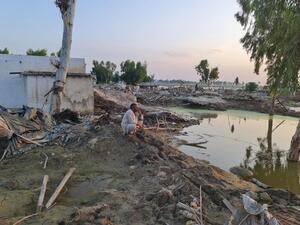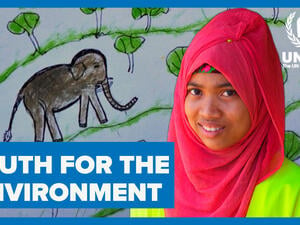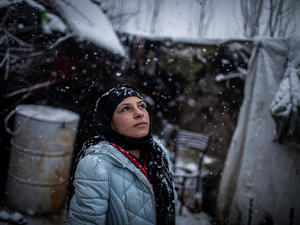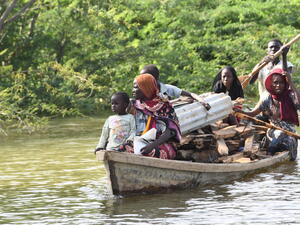UNHCR rushing staff, supplies to assist people affected by Cyclone Idai
UNHCR rushing staff, supplies to assist people affected by Cyclone Idai

Residents carry their personal effects through a flooded section of Praia Nova, Beira, Mozambique, following Cyclone Idai.
UNHCR, the UN Refugee Agency, is working with governments and humanitarian partners in Mozambique, Zimbabwe and Malawi to provide relief to the survivors of the Tropical Cyclone Idai, which struck the east coast of southern Africa on 14 and 15 March.
We are sending our emergency response teams – making available our expertise and staff, and aid supplies to assist those affected by the disaster without recent precedent in the region.
UNHCR efforts demonstrate solidarity with the people of the region who have for decades generously hosted refugees and shared their limited resources with them.
Our teams will support the ongoing efforts to respond to the urgent life-saving needs of the affected people, including refugees.
We are mobilizing emergency shelter and core relief items from our global stockpiles to assist some 30,000 people in dire need, including affected refugees in Zimbabwe and their host communities, and the local population displaced by the cyclone.
The affected population is in dire need of basic relief supplies, food, health services and shelter. Our relief items will include family tents, shelter plastic tarpaulins, sleeping mats, cooking sets and utensils, jerrycans, buckets, mosquito nets, solar lamps and soap.
In Mozambique, the most affected country, the government has declared a national emergency as the death toll from the effects of the cyclone climbs above the reported 242 and is expected to exceed 1,000. The country is currently home to some 25,000 refugees – who have fortunately not been directly affected.
In Zimbabwe, the government has declared a state of disaster, and 104 people are reported to have died as a result of the cyclone. Two districts are reported to have been severely affected, including Chipinge District, host to Tongogara refugee camp. The camp currently has some 13,000 refugees, many of whom have suffered injuries, but no fatalities.
UNHCR is conducting rapid assessments in Tongogara camp to determine the extent of the damage; however, based on available information, 2,000 refugee houses, mainly built using mud bricks, were completely or partially damaged. Over 600 latrines have collapsed, and borehole water is feared to be contaminated due to flood waters. There is a real danger of an outbreak of waterborne diseases.
The refugee host communities have also been affected, and it is estimated that 100,000, Zimbabwean residents of Chipinge District, including some 20,000 who live near the refugee camp, are in immediate need of life-saving humanitarian assistance.
In Malawi, the government has also declared a state of national disaster, and 84 people are reported to have died. At least 15 districts and two cities have been impacted, with approximately 840,000 people affected nationally by the floods.
About 94,000 people are displaced and sheltering in makeshift sites for internally displaced people. Refugee locations in Malawi were not directly affected.
More than 4,400 Mozambican nationals, including women and children, have been forced to seek safety from the cyclone’s devastation in Nsanje district, in Malawi. We plan to assist both Mozambican new arrivals and their Malawian hosts.
UNHCR has decades-long experience speedily responding to refugee humanitarian emergencies around the world.
For more information on this topic, please contact:
- In Malawi, Rumbani Msiska, [email protected], +265 999 911 830
- In Mozambique, Hans Lunshof, [email protected], +258 84 3265 980
- In Geneva, Babar Baloch, [email protected], +41 79 513 9549
- In Nairobi (on mission), Charlie Yaxley, [email protected], +41 79 580 8702








